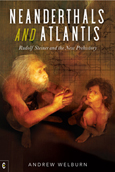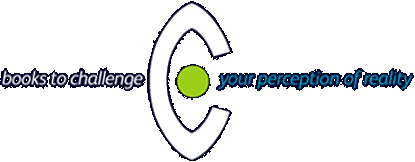
Where do we come from? The idea of human origins – the whole pattern of prehistory – has been through a revolution. The long-held Darwinian view purported to show how adopting an upright posture caused the gradual transition from animal to human. That theory has fallen apart spectacularly. Human orientation and equilibrium are now seen as a ‘biological new beginning’. Characteristics such as social complexity and artistic ability emerged with startling suddenness – in a Stone Age ‘cognitive explosion’. In place of Darwin, an entirely new history has emerged: a migration out of Africa and a Middle Eastern transformation. Crucial to understanding this is the discovery of our mystical-shamanic roots, as shown in the cave-paintings that dazzled Picasso. It has become clear that the cognitive leap was a spiritual revolution.
Where do we come from? The idea of human origins – the whole pattern of prehistory – has been through a revolution. The long-held Darwinian view purported to show how adopting an upright posture caused the gradual transition from animal to human. That theory has fallen apart spectacularly. Human orientation and equilibrium are now seen as a ‘biological new beginning’. Characteristics such as social complexity and artistic ability emerged with startling suddenness – in a Stone Age ‘cognitive explosion’. In place of Darwin, an entirely new history has emerged: a migration out of Africa and a Middle Eastern transformation. Crucial to understanding this is the discovery of our mystical-shamanic roots, as shown in the cave-paintings that dazzled Picasso. It has become clear that the cognitive leap was a spiritual revolution.
Over one hundred years ago, Rudolf Steiner spoke of two human types or species. This book illustrates how many of Steiner’s descriptions of human development coincide remarkably with emerging perspectives. His evolutionary thinking about humanity’s distinctive role can set scientific discoveries in a dramatic new light. His concepts concerning rhythmic phases and transitions – grounded in the formation and disintegration of continents – give authentic scientific expression to the myth of Atlantis. Welburn weaves Steiner’s perspectives with contemporary research in this ground-breaking work, exploring the turning-points of human consciousness. In doing so, he helps replace the search for man’s animal connections with the need to re-think the very meaning of being human.
ANDREW WELBURN is a wide-ranging author of works exploring the history and evolution of consciousness. Starting out with a thesis on William Blake and the Gnostics, his main concern has been bridging academic and spiritual perspectives. He has been engaged particularly with Rudolf Steiner’s philosophy and esotericism, through which he has striven to illumine the Christian imagination in poetry and art, highlighting the Romantic writers.
In his books The Beginnings of Christianity and From a Virgin Womb he has studied archaic traditions concerning the ‘transfiguration of the world’ in their relevance to Christian origins and a vision of future reality. In his most recent work he is extending the bounds of his researches into evolution and prehistory. He has been a British Academy Fellow and Frances Yates Fellow in the universities of London and Oxford.
Published in the UK by Clairview Books, 25 November 2024
£25.00; 356pp; 23.5 x 15.5 cm; paperback; ISBN 9781912992690
